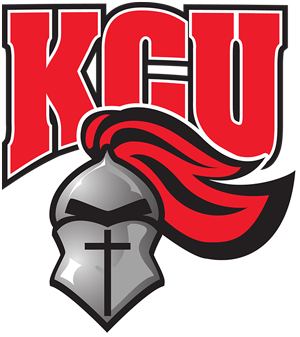Pre-Licensure Baccalaureate Program
Mission Statement
Additional Information
Student Outcomes
The Yancey School of Nursing is a unique academic environment where students can develop into competent, caring nurses by studying alongside experienced faculty who are dedicated to the educational ministry of KCU. Students will appreciate small class sizes and life-changing mentoring relationships with faculty and staff who are passionate about sharing the ministry of nursing. YSN graduates will leave KCU confident in their nursing knowledge and prepared for a life of service through the nursing profession.
A Graduate Of Kentucky Christian University Yancey School Of Nursing Is:
- A caring and competent provider, designer, and coordinator of nursing care who demonstrates integrity, biblical values, and nondiscrimination in health promotion and illness management.
- A critical thinker who employs the nursing process and provides evidence based health care information to individuals, families, and communities empowering them to make informed choices and decisions.
- A caring and competent manager of nursing care in a variety of settings respecting the dignity and worth of each patient regardless of ethnic identity, race, gender, age, status, diagnosis, or ability to pay.
- An effective communicator who uses leadership skills to collaborate and partner with patients, families, communities, and other health care providers to promote wellness and effect social change for a healthy environment.
- A professional practitioner and lifelong learner who understands health care systems and health care policy, encouraging legislation and policy consistent with the advancement of nursing care and health care.
Admissions Process
The Yancey School of Nursing has a limited enrollment. Applicants are reviewed by the Nursing faculty. Selection of Yancey School of Nursing applicants is based on the following criteria:
- Successful completion of the following pre-requisite or equivalent courses with a “C” or above:
- ENG 101: English Composition I
- ENG 102: English Composition II
- BIO 113: Anatomy & Physiology I
- BIO 114: Anatomy & Physiology II
- BIO 115: Anatomy & Physiology Lab
- HCP 101: Introduction to Psychology
- Completion of a minimum of 30 credit hours or more of college-level course work (courses numbered below the 100 level will not be considered as part of the required 30 credit hours).
- A minimum cumulative GPA of 3.0 on a 4.0 scale in all college courses taken (as a high school or college student). Science grades are averaged if courses have been repeated.
- Minimum ACT Composite score of 21 or previously earned Associate Degree or higher from an accredited institution.
- The Assessment Technologies Institute (ATI) Test of Academic Essential Skills (TEAS) may be used as an alternative to the ACT requirement for applicants meeting the following eligibility criteria:
-Are more than 5 years post high school AND
o Have never taken the ACT or SAT OR
o Have <21 ACT minimum TEAS total score of 60% will be accepted in lieu of a minimum 21 ACT. Official transcripts must be submitted directly from ATI. Retake scores will be accepted if the following conditions are met:o Retake must be a different test version than previous attempts
o No more than 3 retakes in a year
o Remediation period of two weeks between retakes
Applicants must visit ATI Testing and complete online registration for a test administration in their location. - Minimum TOEFL iBTA English proficiency score of 84 and speaking score of 26 required for applicants for whom English is not their native language.
- Personal statement describing the applicant’s interest in nursing as a career and the reason for desiring to enroll in the nursing major.
- Anatomy and Physiology I & II (life sciences courses) must have been completed within 5 years prior to application to the nursing major.
- Personal interviews may be required.
Applicants with more than 2 failures of required courses within 3 years of application to the nursing major are ineligible to apply.
Application Process
Application Deadlines
- Applications for fall (August) enrollment are available beginning January 1. The priority application deadline is March 1. All application materials for fall enrollment must be received by July 1.
- Current KCU students – please see your advisor for a link to the online application.
- If you are not a current KCU student – please complete the KCU undergraduate application.
- Students applying by the application deadline will be notified of acceptance status via mail to the address listed on the application.
Application Requirements
A completed application must include:
- Official Transcripts of all college work – request to be sent directly from registrar to KCU.
- Official ACT/SAT/TOEFL score report ESL students Foreign Language Exam Score (If applicable) – request directly to KCU.
- Official high school transcript – send directly to KCU.
- Transfer students from another accredited nursing program must provide course syllabi for all nursing courses.
- Personal Statement describing your interest in nursing as a career and, specifically, the reason for desiring to enroll in the Yancey School of Nursing.
Send transcripts to:
Link this button to the Internal BSN Admission Application form. Required Course Listing
Total Program Hours: 120
College 101 or Intro to KCU
Composition I or ENG 100
Composition II
Developmental Psychology
History Elective
Humanities Elective
Introduction to New Testament
Introduction to Old Testament
Math Elective
Science Elective: A&P I
Social Science: Intro to Psych
College 101 or Intro to KCU
Composition I or ENG 100
Composition II
Developmental Psychology
History Elective
Humanities Elective
Introduction to New Testament
Introduction to Old Testament
Math Elective
Science Elective: A&P I
Social Science: Intro to Psych
Acts
Bioethics (BTH 454 Ethics & Medicine)
BNT, BOT, BTH, CML, CMM, CMP, CMY, or IST Elective
Christian Heritage
Introduction to New Testament
Introduction to Old Testament
Acts
Bioethics (BTH 454 Ethics & Medicine)
BNT, BOT, BTH, CML, CMM, CMP, CMY, or IST Elective
Christian Heritage
Introduction to New Testament
Introduction to Old Testament
A&P II
Anatomy and Physiology Lab
Intro to Statistics
Medical Terminology
Microbiology Lab
Pathophysiology
Principles of Microbiology
A&P II
Anatomy and Physiology Lab
Intro to Statistics
Medical Terminology
Microbiology Lab
Pathophysiology
Principles of Microbiology
Adult Nursing and the Caring Process
Advanced Medical-Surgical Concepts
Clinical Integration Practicum
Community Health Nursing
Fundamentals of Nursing Caring Process
Health Assessment/Clinical Prevention
Informatics and Healthcare Technologies
Intro to Adult Nursing/Caring
Intro to Nursing Research
Mental Health Nursing
Nursing Care of Children
Nursing Care of Women and Childbearing
Nursing Leadership and Professional Practice
Pharmacology in Nursing I
Pharmacology in Nursing II
Adult Nursing and the Caring Process
Advanced Medical-Surgical Concepts
Clinical Integration Practicum
Community Health Nursing
Fundamentals of Nursing Caring Process
Health Assessment/Clinical Prevention
Informatics and Healthcare Technologies
Intro to Adult Nursing/Caring
Intro to Nursing Research
Mental Health Nursing
Nursing Care of Children
Nursing Care of Women and Childbearing
Nursing Leadership and Professional Practice
Pharmacology in Nursing I
Pharmacology in Nursing II
Additional Course Notes
Lifelong Friends
“At KCU, you have the opportunity to make lifelong friends with other faculty, staff and students. I know for me, these friendships will continue into eternity as these will be some of my treasures stored in heaven.”
Dr. Mitch Marshall, KCU Professor


